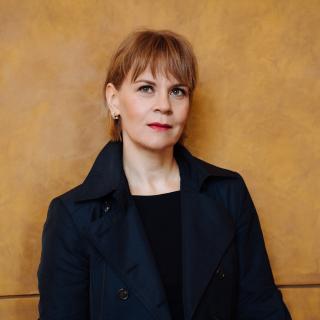The dazzling violinist Joshua Bell brings to Henryk Wieniawski’s 2nd violin concerto a balanced combination of brilliant sparkle, fieryness and singing backwaters.
The concert season of the Helsinki Philharmonic Orchestra concludes with a great symphony by a composer known as a master of small song form. Franz Schubert composed more than 600 solo songs in which he managed to capture situations, emotions and feelings by changing the tempo, shifting between moods with amazing agility. The composer’s 8th symphony demonstrates these same skills on a larger symphonic scale.
The orchestra will be joined for the first time by the dazzling master violinist Joshua Bell, who is “simply one of the best” (New York Classical Review). Henryk Wieniawski’s 2nd violin concerto is an enjoyably balanced combination of brilliant sparkle, fieryness and singing backwaters.
Joshua Bell appears by arrangement with Park Avenue Artists ( www.parkavenueartists.com ) and IMG Artists, London ( www.imgartists.com ). Mr. Bell records exclusively for Sony Classical - a MASTERWORKS label.
Henryk Wieniawski: Violin Concerto No. 2 in D Minor, Op. 22
One of the greatest violinist-composers of the 19th century was the Polish Henryk Wieniawski (1835–1880). Some even rated him higher than the legendary Paganini. He composed a number of works for the violin that are still popular today (such as the Polonaise Brillante, Legenda and Scherzo-Tarantella), but only two violin concertos. No. 2 in D Minor, the better-known one and dedicated to Pablo de Sarasate, was premiered in St. Petersburg in 1862. Wieniawski was naturally the soloist, and the conductor was Anton Rubinstein.
The concerto has the classical three movements but, unlike other concertos of that century, the orchestra is not just a mere accompanist. The solo part has all the ingredients guaranteed to make the audience gasp in amazement and admiration, abounding in double stops and flageolet notes, arpeggios and rapid chromatic scales. But it would not have remained in the repertoire had it not been packed with glowing melodies and romantic moods.
Franz Schubert: Symphony No. 8, “The Great C-Major”
Franz Schubert (1797–1828) completed his “Great” C-major symphony not long before he died at the untimely age of 31 and it never had a public performance during his lifetime. It did, however, get a run-through at an unofficial event at the Vienna Musikverein but was dismissed as too long and too difficult to play. Ten years would pass before Robert Schumann visited the Musikverein, saw the score and took a copy to Felix Mendelssohn, who conducted the premiere in Leipzig in 1839.
Schubert’s premonition of his early death is reflected in the music, its boundless beauty alternating with melancholy. The slow movement in particular has its dark moments, leading up to an agonising climax. For the most part the music is, however, sunny and optimistic. The symphony is known as the “Great C-major” simply to distinguish it from an earlier one in the same key completed in 1818, yet the name could not be more appropriate for this work of epic landscapes and divine melodies.

